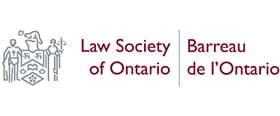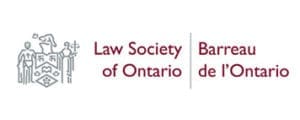The accused was charged that on the 12th day of December without reasonable excuse he failed or refused to comply with a demand to provide a breath sample in an Approved Screening Device (Approved Screening Device) Contrary to s.253(2) Canadian Criminal Code.
Officer Humphries stopped the defendant pursuant to a Ride Program. Upon approaching the officer, the defendant stopped his vehicle momentarily before proceeding through to the officers.
The officer asked the defendant if he consumed any alcohol to which, according to the officer, the defendant stated “possibly a lot”. As a result of this admission and the initial hesitation of the defendant, the officer stated he formed a reasonable suspicion that the defendant had alcohol in his body.
At 11:01 pm the approved screening device demand was given and at 11:036 pm the officer explained how the device operated and gave a demonstration of the same. An in-car video captured much of the defendant’s actions and conversation with the officer.
The officer had satisfied himself that the Approved Screening Device was in proper working condition, had ensured it was calibrated properly, and had used it without difficulty at least five times earlier that evening. From 11:01 pm to 11:04 pm, four breath samples were given by the defendant.
According to the officer, the samples were insufficient to get a reading as the defendant would stop prematurely. The defendant stated he was “trying to keep going”, and later “let me try again”. The officer stated to the defendant after the third failed attempt, “We’ll just keep going till we get one then”. According to the officer, the defendant “was right on the cusp” of giving enough breath.
I observed that the defendant appeared to blow for three to five seconds before he would stop. He would inhale before giving a sample. The officer commented after one attempt that the defendant was on the verge of giving sufficient breath to register a reading.
The officer would cheer the defendant on as breath was entering the machine and would tell the defendant that he was stopping prematurely and that he knew the defendant had more breath when he stopped.
A fourth sample was given. It appeared to be longer (approaching five seconds). Again, a similar attempt was made and nothing registered. The defendant asked, “Why is this happening, I’m blowing!” The defendant was warned if he did not provide a proper sample, he would be charged with “refusing to provide a breath sample”.
The defendant replied, “I refuse?” “I’m drunk?” Obviously denying the officer’s suggestions. He then stated, “Did I not blow five times? You’re saying I’m drunk?” After a short exchange he then told the officer “to place me under arrest” – “take me to the hospital” then said, “Fine, I’ll blow again”.
Again a discussion between them occurred where the defendant stated he could not blow harder than he had. He stated that he did no refuse to blow and that he had tried five to seven times to provide a “big breath”. He argued with the officer who suggested to him that he could indeed give a longer sample.
The defendant became frustrated at this point and stated he refused to blow. The officer had the defendant repeat himself and thereafter he arrested him at 23:10 for refusing a breath test. While the defendant was given his Rights to Counsel he appeared to be somewhat incredulous stating – “you say I refuse to blow! I did not refuse to blow… I blew seven times”. Then at 23:16 he asked the officer, “Do you want me to blow again?” to which the officer replied, “no, you don’t have that option.”
The defendant remained with the officer from 11:16 pm to 12:03 am when he was served with the 90 day suspension.
During this time, the in-car video shows that at various times the defendant would state that “I did not refuse to blow”. He offered to go to police station for a breath test or to the hospital. At 23:50 he stated “I never said I refused”.
The officer testified that he thought the defendant was “playing around” as he never gasped or otherwise gave any outward indication of difficulty. According to him, the defendant stopped blowing intentionally as he could begin talking immediately after his attempts without breathing in beforehand.
This would not be possible, according to him, if he was trying the best he could. He further acknowledged that he understood the defendant to offer “to do it again” at 23:16.
The defendant called his family doctor who indicated that he tested his patient using a Spiro meter. He diagnosed the defendant with chronic obstructive pulmonary disease (COPD) which according to him is a progressive disease that was brought on by the defendants smoking over several years.
The disease is characterized by the loss of elasticity in the lungs which causes a loss of capacity to exhale. The defendant is in the early stages of the disease (66% loss of lung capacity compared to 80% which would be the norm for the defendant’s age).
The doctor viewed the in-car video in court and commented that according to him, it appeared as though the defendant was giving his best effort during his attempts to provide breath samples. According to him he seemed to be trying.
He has since prescribed the defendant medication which helps reverse bronchiole constriction. He was asked whether in his opinion someone in the defendant’s position on the evening in question could start talking immediately after giving a full exhalation.
The doctor stated that one could do so and he often sees the same occur when he gives test for emphysema in his office.
The defendant did not testify. Counsel for the defense raises three separate issues. His first argument is that the Crown did not prove beyond a reasonable doubt that the mouth piece for the breathalyzer, the approved roadside screening device was intact. He refers to the video which shows that the mouthpiece was not tested or checked to ensure it wasn’t defective.
I cannot accept this in light of the officer’s testimony that he had an opportunity to observe the mouthpiece before, during and after the defendant’s use of it and he testified that no air escaped the mouth piece. He could see it at all material times and a crack could be seen easily having regard to the transparency of the mouthpiece. Further the sound of air escaping would occur if a mouth piece was defective and such did not occur that evening.
The second issue relates to the “failing” allegation as it relates to the six samples given by the defendant. Here defense counsel argues that the Crown has the burden of proving that the defendant has the necessary mens rea of the offence. He points to the following:
The defendant’s repeated statement throughout the evening that he was trying his best;
That the defendant did not do anything which would allow one to infer he was disingenuous. He did not play obvious games such a puffing one’s checks, inserting one’s tongue in the mouthpiece, blowing outside the tube etc.
The defendant’s efforts were often, using the officer’s words, “on the cusp of” being sufficient;
The defendant’s offer to go to the hospital and later to the police station is consistent with his desire to provide the proof needed to measure the concentration of alcohol in his blood;
The defendant was not disrespectful or uncooperative’
The defendant’s repeated response to the officers’ warnings in the nature of questioning the office’s conclusion that he was refusing i.e., “I’m refusing?”
The doctors evidence that he has COPD and his observations of the video and comments on the same.
All of the above acceding to defense counsel cannot support a finding that the defendant intentionally tried to circumvent the breath tests beyond a reasonable doubt.
Crown argues that the onus is on the defendant to establish a reasonable excuse on the Balance of Probabilities. He questions the defendant in this regard, pointing to the officer’s testimony that he did not provide a suitable sample. He did not provide a suitable sample as he was deliberately providing inadequate samples.
Did the Defendant fail to give a proper sample?
In R.v. Dolphin Scurfield J. Discussed the burdens applicable when dealing with “failure cases”. At page 214-215 he states:
There is clearly an overlap in the proof that is required to prove both the actus reus and the mens rea in “failure” cases. Whenever there has been an outright refusal, mens rea can be presumed. However, where a failure is alleged, more proof is required.
Usually, that proof will flow from the inference that a person intends to often drawn from proof that an adequate sample was not provided after a clear explanation was given as to how to blow into the device and after the accused was given an adequate opportunity to blow into a device that was in good working order. Having sad that, often is not always. Consequently, whenever the defense argues that the accused did not intentionally refuse to prove a sample, the court must analyze the evidence to determine if mens rea has been proved beyond a reasonable doubt.”
The difficulty with the Crown’s case is that once the officer hears the defendant utter the words, “I refuse”, he immediately abandons the process of warning the defendant of the consequences of refusing to provide a sample. He was doing this as he intended to give the defendant another chance to give a sample.
The fact that he was in the process of allowing him another chance is somewhat at odds with having the grounds to arrest for “failing” to blow.
I cannot reject the medical evidence that the defendant has a reduced capacity. The officer believed the defendant was playing games because he would not inhale before talking immediately after giving a breath sample. The doctor, on the other hand, stated that one cannot make such an influence as he often sees patients speak immediately after giving long breath sampled into a Spiro meter.
The basis for the officer’s belief may be based on an interference that may seem logical but having regard to the doctor’s evidence may be a faulty or unsafe one. Further, the video shows the defendant attempting to give breath samples that were, using the officer words, “on the cusp” of sufficient. In conclusion having regard to the defendant’s diagnosis of COPD, the doctor’s evidence, the insufficient basis to infer the defendant was playing games and his outright insistence that he was trying his best, I have a reasonable doubt that he intentionally failed to give a suitable sample.
The third issue raised by defense counsel arises from the refusal by the defendant after his sixth attempt. He argues that the unequivocal refusal of the defendant at approximately 23:08 cannot be viewed in isolation in that it was followed by an offer at 23:16. He refers to R.v> Sagh (1981) A.J. 591 arguing that a timely subsequent offer can be such that the refusal cannot be characterized as unequivocal.
The Crown argues that it is not for the defendant to decide when to give a sample just as he cannot dictate whether he can give a sample at the hospital rather than at the road-side. Further he points to the wording of the defendant’s purported offer: “do you want me to blow again?” as ambiguous.
He suggests that the defendant was merely uttering a rhetorical question. He argues we should not put the officer in the position of guessing whether the defendant had made an offer especially after the earlier categorized refusal.
It is important to assess the particular circumstances of this matter. The defendant was given a demand at 11:01pm. From 11:04pm to 11:08pm, six attempts were made by the defendant. The officer was in the process of warning him prior to administering another sample when the defendant refused to blow.
The refusal’s wording is categorical however; it is also in the context of the defendant’s disputing the suggestion of the police officer that he was in fact refusing. In fact his refusal is preceded by “fine, I’ll blow again”. Only after arguing about the suggestion that he is refusing and his apparent growing frustration with these suggestions does he say: “shit, what I’m doing wrong? You want to place me under arrest? O.K. I refuse”.
The officer then placed him under arrest at 23:09. While handcuffs are being placed on the defendant and his Rights to Counsel are being given he is still saying that he did not refuse and repeats that he blew seven times. During this exchange at 23:16 he states, “You want me to blow again?” The officer replied that the defendant did not have that option. The time from the initial demand to the arrest at 23:09 was eight minutes. The accused had offered to give a sample just prior to his refusal and the officer was in the process of allowing the same (after further warning the defendant).
After the arrest, handcuffing, having his Right to Counsel given, the accused offered to give another sample. The officer denied the denied the defendant. The offer is approximately seven minutes after the arrest and the Approved Screening Device is still present.
The defendant’s prior blow had been “on the cusp” of the necessary sic to eight seconds required and the officer remained in the vehicle with the defendant after the arrest of 23:09 until 24:02 the next day. Having regard to the temporal gap, the officer’s prior willingness to have the defendant give another sample prior to the purported categorical refusal, the officer’s denial of what he himself characterized as an offer by the defendant at 23:16, the availability of the machine, the overall cooperative behavior of the defendant and the facts regarding the lack of compliance (blowing up to five seconds of the required six to eight seconds).
I find that the subsequent offer by the defendant was part of one single transaction of the defendant responding to a demand. I find the subsequent offer genuine having regard to the fact that the verbal refusal was in the context of an argument whereby he was denying the suggestion made by the officer that he was refusing to provide a sample. His repeated offer to go to hospital and later to the police station at 23:27 supports an inference that he may not have been trying to avoid having the concentration of alcohol in his blood measured.
I am reminded of Cote, JA words in R.v. Cunningham (Alta C.A.) (1989) A.J.No.544, “In my view a single conversation may contain many twists, turns, or pauses, and one should not dissect it minutely or take a single sentence out of context”
Having regard to the above, I find the Crown has not met its burden and the defendant is hereby found not guilty.


 Experience counts in criminal defence. Knowing the court system, the crown attorney’s, police and judges and having them know you can have dramatic implications. Your lawyer’s reputation can have a bearing as to how your case proceeds.
Experience counts in criminal defence. Knowing the court system, the crown attorney’s, police and judges and having them know you can have dramatic implications. Your lawyer’s reputation can have a bearing as to how your case proceeds.




